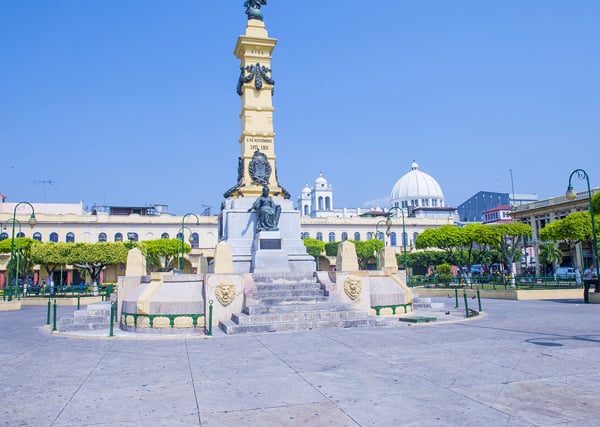Tips for Expats Driving in San Salvador
Summary: Driving in a new country can be daunting. These tips offer insight into what to expect when driving in San Salvador.

1. Understanding the Driving Culture
Driving in San Salvador can be a challenging experience for expats. The traffic is often heavy, and local drivers can be aggressive. It's not uncommon to see drivers ignoring traffic rules, so you need to be alert at all times. It's also important to note that road conditions can vary, with some roads being well-maintained while others are in poor condition.
2. Choosing the Right Car
It's recommended to have a car that's robust and can handle different road conditions. SUVs are a popular choice among expats due to their versatility. However, smaller cars can also be advantageous in heavy traffic and when parking in tight spaces.
3. Parking in San Salvador
Finding parking in San Salvador can be difficult, especially in busy areas. Some areas have metered parking, while others require a parking permit. Parking can also be expensive in certain areas. It's advisable to research parking options in your area to avoid any inconveniences.
4. Driving with an International License
Foreigners can drive in El Salvador with an international driving permit for up to 90 days. After this period, you will need to obtain a local driver's license.
5. Obtaining a Local Driver's License
To get a local driver's license in El Salvador, you will need to pass a written test and a practical driving test. You will also need to provide certain documents, including your passport, proof of residence, and a medical certificate. It's recommended to contact the local transport authority for the most accurate and up-to-date information.
6. Safety Precautions
Due to the aggressive driving culture and varying road conditions, it's important to always prioritize safety. Always wear your seatbelt, avoid driving at night if possible, and never drink and drive. Also, be aware of your surroundings and keep your doors locked and windows up, especially in traffic.
7. Navigating the City
San Salvador is a large city, and it can be easy to get lost. It's recommended to have a reliable GPS or navigation app to help you find your way. Also, be aware that traffic can be heavy during peak hours, so plan your journeys accordingly.
About the Author
 Betsy Burlingame is the Founder and President of Expat Exchange and is one of the Founders of Digital Nomad Exchange. She launched Expat Exchange in 1997 as her Master's thesis project at NYU. Prior to Expat Exchange, Betsy worked at AT&T in International
and Mass Market Marketing. She graduated from Ohio Wesleyan University
with a BA in International Business and German.
Betsy Burlingame is the Founder and President of Expat Exchange and is one of the Founders of Digital Nomad Exchange. She launched Expat Exchange in 1997 as her Master's thesis project at NYU. Prior to Expat Exchange, Betsy worked at AT&T in International
and Mass Market Marketing. She graduated from Ohio Wesleyan University
with a BA in International Business and German.
Some of Betsy's articles include 12 Best Places to Live in Portugal, 7 Best Places to Live in Panama and 12 Things to Know Before Moving to the Dominican Republic. Betsy loves to travel and spend time with her family. Connect with Betsy on LinkedIn.
Additional Information:
- Tips for Expats Driving in San Salvador
- Cost of Living in San Salvador
- Health Care in San Salvador
- The Essential Guide to San Salvador
- Healthcare & Health Insurance in El Salvador
- Best Places to Live in El Salvador
- Real Estate in El Salvador
- Pros & Cons of Living in El Salvador
- Health Insurance in El Salvador
- Pros and Cons of Living in El Salvador 2025





